Artificial intelligence (AI) is here. It’s actually been here for a while, but rapid technological advances in recent years have spurred AI to the point where it’s nearing its Sci Fi equivalent of intelligent robots taking over the world thinking for themselves. At its most basic level, AI is ‘intelligence’ demonstrated by machines and consists of three stages:
- Stage 1: Machine Learning (Siri, Alexa, Cortana, etc.)
- Stage 2: Machine Intelligence (we’re currently here)
- Stage 3: Machine Consciousness with cognition and self-learning (AI as seen in most Sci Fi movies)
Some of the goals of its advancement include reasoning, automated learning, Natural Learning Processes, Computer Vision, General Intelligence, robots and more, and some terms you’ll often hear while discussing it are:
Read More About: AI Technologies Predictions That Will Dominate In 2019
- Natural Learning Processes, in which machines can understand and interpret human language. The goal with NLP is to fill the gap between how humans communicate and what computers understand, and it’s used in voice technology like speech and voice recognition.
- Machine Learning with systems that can learn from experience. We see this every day with services like Amazon and Netflix when they recommend products and movies.
- A Neural Network that consists of a network of artificial neurons. Ideally, a neural network will perfectly mimic a human brain and will be able to let machines think like us (reasoning, planning, learning, understanding).
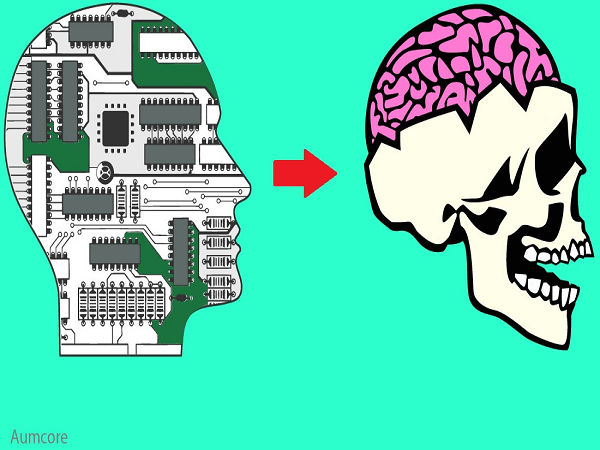
- Deep Learning with systems that use Deep Neural Networks on a large set of data; it’s AI that uses algorithms to perform tasks and learn from them.
How Will Artificial Intelligence Impact Our Market?
Many companies and brands today are already using AI in their paid marketing advertising and other activities that can can gain from it. It all comes down to data. Companies regularly handle a lot of it and, with AI and automation, they can make sense of it and use it to their advantage. For example, executives from Forbes Technology Council highlighted eight industries that will benefit the most from AI:
- Internet Of Things
“Consumer behavior can be studied and learned by artificial intelligence, thereby improving upon the production of consumer products for the internet of things industry. When deployed in homes and cars, this intelligence can learn more about humans and how they think and act, thereby helping the IoT devices’ response.” – Chalmers Brown, Due
Read More About: The Importance of Artificial Intelligence and Automation in Paid Marketing
- Sales Automation Services
“Rarely a day goes by where I don’t get an offer for lead-generation services. Sales automation companies like InsideSales.com are red hot now, and for good reason. There is definitely a need to improve the sales process, and if artificial intelligence can examine online behavior or profiles accurately to identify potential opportunities, then companies like mine would sign up for such services immediately.” – Tim Maliyil, AlertBoot
- SMB Tools
“Firms with fewer than 500 employees make up 99.7% of all businesses in the U.S. When I look at the SMB landscape across all industries, I see a lot of opportunities for tech companies to put the very best tools in the hands of small-business owners. Artificial intelligence is no exception. Small-business owners don’t care how their software works, just that it works.” – Timothy Chaves, ZipBooks
- Autonomous Transportation
“The National Safety Council estimates 38,300 people were killed and 4.4 million injured on U.S. roads in 2015, which saw the largest one-year percentage increase in 50 years. With car accidents and car-related deaths on the rise in the U.S., the single most promising application of artificial intelligence is autonomous transportation. Computer-engineered driving will decrease accidents and deaths.” – Scott Stiner, UM Technologies, LLC
- Virtual Assistants
“Artificial intelligence isn’t yet ready to replace the human element, which powers virtual assistant apps. However, AIs process mounds of data in seconds, helping to expedite and personalize the decisions that assistants make on behalf of their clients. The resulting efficiency and cost reduction would help such apps break out of the Silicon Valley bubble and enter the mainstream of average users.” – Gurpreet Singh, TalkLocal
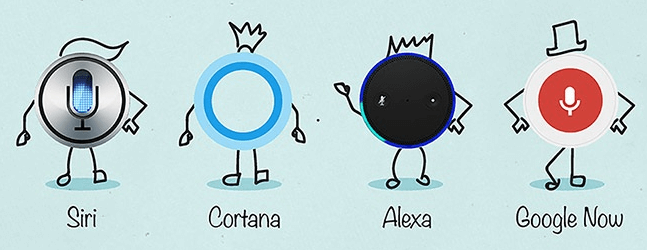
- Shipping And Logistics
“Aside from the obvious current conversation around artificial intelligence enabling self-driving cars, I would expect to see similar technologies employed to help solve challenges in shipping and logistics, such as space allocation in trucks/shipping containers, and the dynamic management of route systems to improve delivery times on the fly.” – Robert Calise, CommunityCo
- Security Analysts
“While companies are leveraging AI for everything from fraud detection to self-driving cars, the security industry is especially primed for an AI-driven paradigm shift. In security, we need deep visibility into what is happening in the enterprise. This creates a vast amount of data – too much to be readable by humans in finite time. AI can help security analysts make better decisions faster.” – Jamie Butler, Endgame
Read More About: The Principles of Designing AI for Humans
- Health Care
“Health care will be the primary beneficiary of artificial intelligence. Good health is in everyone’s interests and, however they are funded, health-care costs are significant and unavoidable. The efficacy and efficiency that AI will bring to health care will enable us to trim costs, as well as improve outcomes, with all of us gaining better understanding and management of our personal health.” – Matthew Russell, Digital Reasoning
Brands Using AI
In terms of brands using AI, you have the general tech giants like IBM, Facebook and Google that regularly make the news with their AI endeavors, and then you have others like Starbucks, Lowe’s and USPS. Respectively, Starbucks created the ‘My Starbucks Barista’ app that uses AI to allow users to place orders with their voice, which is then sent to a nearby location for preparation and pick-up; Lowe’s introduced LoweBots, roaming robots that use NLP to respond to a customer’s questions — sensors can even detect if a person is idly standing in front of a section, prompting it to ask them if they need help; and earlier this year USPS unveiled the Smart Blue Box, a voice-activated mailbox that uses AI to answer consumer questions like, “How much will it cost to ship this package?”
Artificial Intelligence in Digital Advertising
When it comes to paid media advertising, many AI advertising companies are using it for many reasons that range from retargeting campaigns to creating an engaging storytelling strategy. Why? Simple. For advertising artificial intelligence can use machine learning algorithms to identify consumers and consumer trends and serve relevant ads that have a higher chance of converting.
Key here is personalization. Agencies are using AI to interpret consumer data at scale, and are then applying it intelligently to deliver truly personal experiences. They’re creating artificial intelligence ads with audience targeting that drastically improve the relevancy of ad campaigns, leading to better performance and improved efficiency.
As VentureBeat puts it, “The ultimate goal of all marketers is to drive sales through positive brand-consumer engagements. But a major problem is that marketers have so much content (oftentimes more than they even realize) and millions of potential places to show it, but don’t know how to determine the optimal place for each piece of content to reach specific audiences.”
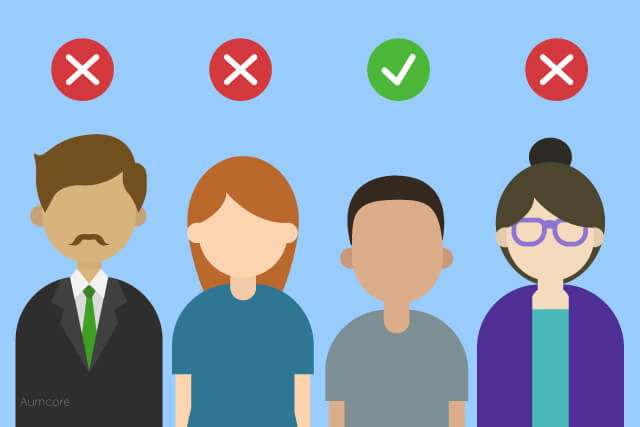
The fact is that humans simply can’t analyze and interpret all the data that can be gleaned from consumer habits. Sure, they may be able to spot patterns and act accordingly, but this is incredible inefficient when compared to what AI can do. AI and machine learning can leverage billions of data points to make predictions for future campaigns, and then use real-time information to optimize throughout.
Final Thoughts
AI has had a pretty big impact on our society. Someday soon it may even surpass our own intelligence, but that’s all speculation and, until then, all we can do is use it to our advantage. Whether it’s voice technology, predictive analysis or a chatbot, it’s safe to say that AI is here to stay.
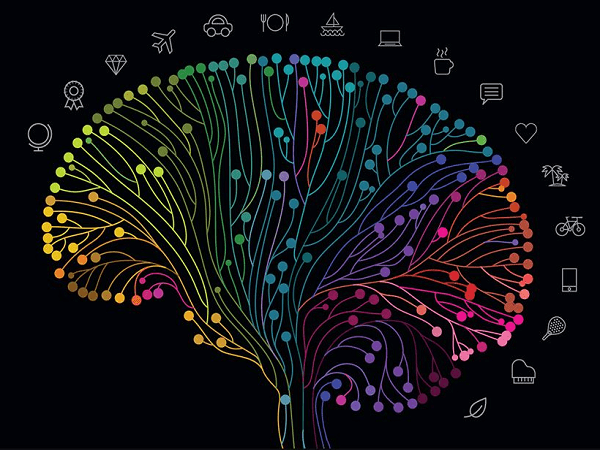

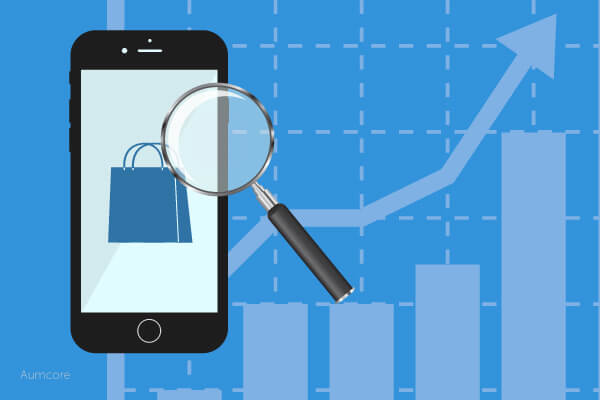


Tell us your thoughts in the comments